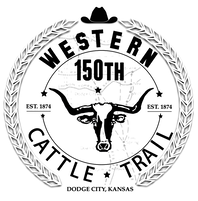|
James Frank Dobie, known as the "Storyteller of the Southwest," was born in 1888 on his family's cattle ranch in Live Oak County. Living both a rugged ranch life and within Texas's centers of education, he taught at the University of Texas, where he developed a course on Southwest literature. Dobie's mission became recording and sharing the disappearing folklore of Texas and the Southwest. He served as secretary of the Texas Folklore Society for 21 years. Dobie was a progressive activist, advocating for African-American student admission to UT in the 1940s. Despite leaving the University in 1947 due to his vocal politics, he continued writing until his death in 1964, leaving behind a legacy that valued liberated minds as the supreme good in life.
“Out in the dry Pecos country, a wagon boss once said to his cook, ‘Scour your pots with sand and wipe ‘em with a rag.’ The cook responded, “Rags all used up, but grass’ll do” ((99).
African American Alec Gross was old enough to have white hair. Dobie writes, “Everybody called him Uncle Alec. After he had been out a week with a remuda, he would have the horses following him, instead of him driving them” (113-4). He always carried a whip, but he rarely used it. Dobie writes that many cowboys carried six-shooters, but they seldom used them. He tells the story of his Uncle Frank Byler, who, in the 1880s, finally pulled his pistol out of its holster when he spotted a water moccasin in the water and tried to shoot it. Dobie says, ”The trigger or hammer had become so clotted with dirt and rust that he could not cock the gun....he threw it in disgust at the snake and left it in the mud. He realized, he said, that unless a man could use a six-shooter, he would be better off without it.” Dobie, J. Frank. UP THE TRAIL FROM TEXAS. New York: Random Press, 1955.
0 Comments
Leave a Reply. |
Author"THE MISSION OF THE WESTERN CATTLE TRAIL ASSOCIATION IS TO PROTECT AND PRESERVE THE WESTERN CATTLE TRAIL AND TO ACCURATELY PROMOTE AWARENESS OF IT'S HISTORICAL LEGACY." Archives
July 2024
Categories |


 RSS Feed
RSS Feed

